Table of Contents Show
In the United States, we are lucky to have so much public land open to us as recreation areas for activities like boondocking. Bureau Land Management (BLM) lands offer an incredible opportunity for free RV parking in some spectacular places, but it’s also our responsibility to protect these special places by following a few rules.
While the BLM offers some guidelines for boondocking, we’ve got a few common courtesies of our own to add.
Read on to learn more!
What Is Boondocking?
Boondocking is dry camping. But dry camping isn’t always boondocking. You can dry camp in a state park by booking a reservation for an individual site and staying overnight without any hookups.
But boondocking is dry camping in a more remote location. You’re typically not surrounded by other RVs. You don’t have any amenities like a bathhouse, playground, or laundry facility. When you boondock, you’re usually away from town and completely on your own. No hookups and no amenities.
What Is the Bureau of Land Management?
The Bureau of Land Management’s mission is “to sustain the health, diversity, and productivity of public lands for the use and enjoyment of present and future generations.”
Created in 1946 during the Truman Administration, the BLM now manages 245 million surface acres, equal to about 1/10 of all the land in the U.S.
This government agency is similar to the National Park Service except that the BLM manages public land for multiple uses as well as conserves natural, historical, and cultural resources.
For example, the BLM may permit livestock grazing or timber harvesting on some public lands but preserve the wildlife habitats and dinosaur fossils found in other areas.
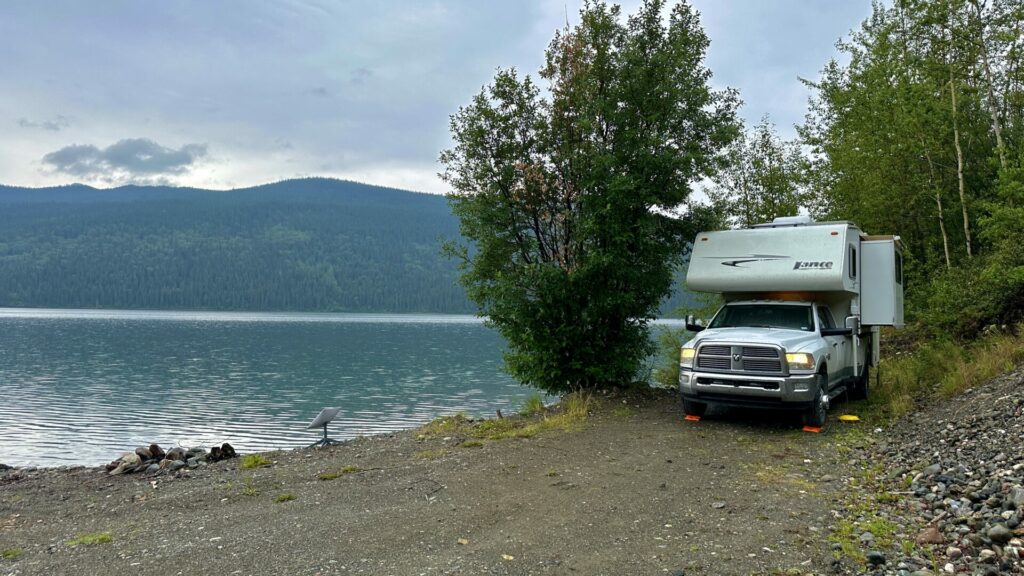
Is It Free To Camp on BLM Land?
It’s not always free to camp on BLM land. In fact, there are BLM campgrounds in some locations that require a fee. Most of these are first-come, first-served campgrounds, but others require reservations on Recreation.gov.
Dispersed camping, which is camping away from developed campgrounds, is usually free. However, it’s important to note whether or not you need a permit. Sometimes this permit has a cost. Camping stay limits are not to exceed 14 days within a 28-consecutive-day period.
BLM Boondocking Rules You Shouldn’t Break
When you’re taking advantage of free camping on BLM land, please follow these general BLM boondocking rules. It’s important that we all take care of our public lands and not ruin the chance to stay in these beautiful locations.
Be a Good Neighbor
Try not to block someone else’s view. Most BLM boondocking is a first come first served situation when choosing a place to camp. If they got there first, don’t pull up in front of them and block their view.
Be aware of generator usage. People come to BLM lands to be in nature, generally looking for peace and quiet. Generators can be quite disturbing, so limit your hours of use as much as possible. And if you must use it, try parking a bit further from other campers, especially those who are primitive camping.
And “give a little distance” is a good BLM boondocking rule in general too. Be respectful of your neighbors and choose a site that allows space between you and the next camper. When in doubt, you can always say “hi” and ask if they mind you camping next door.
Obey Stay Limits
Most BLM boondocking sites have a posted stay limit rule of 14 days within a 28 consecutive-day period, but some areas do vary, so be sure to read posted signs. This rule serves the purpose of preventing damage to sensitive resources caused by continuous use of any one particular area.
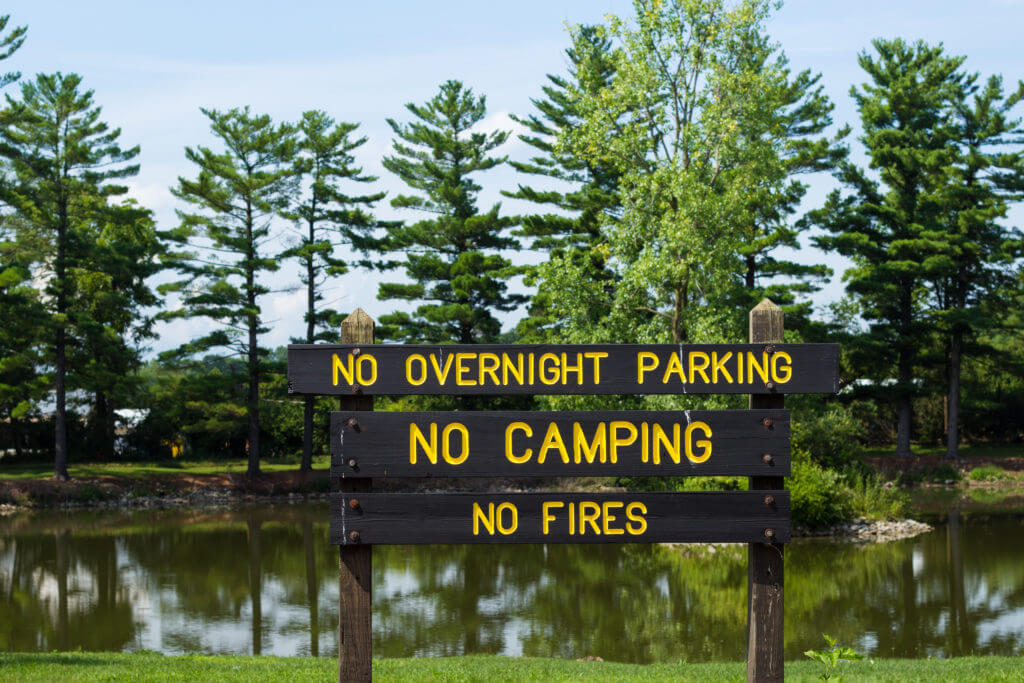
Don’t Dump Your Tanks on the Ground
Dry camping means you won’t have hookups, and it’s never ok to dump your tanks on the ground (grey or black). Don’t dump anything, for that matter- refuse, hazardous materials, sewage. If you’re planning a longer camping trip, be sure to research dump stations nearby in advance.
You can also use a sewer waste tote which is one of our Boondocking essentials.
Use Established Spots and Roads
Some BLM lands offer designated campgrounds, but most dispersed camping areas for boondocking will be located along secondary roads and may not be marked.
Unlike developed campgrounds, you’ll have to seek out your spot to set up camp. Established spots can be recognized by flat, disturbed areas that seem to have been used as a campsite before. Often a fire ring is a telltale of an appropriate spot to claim.
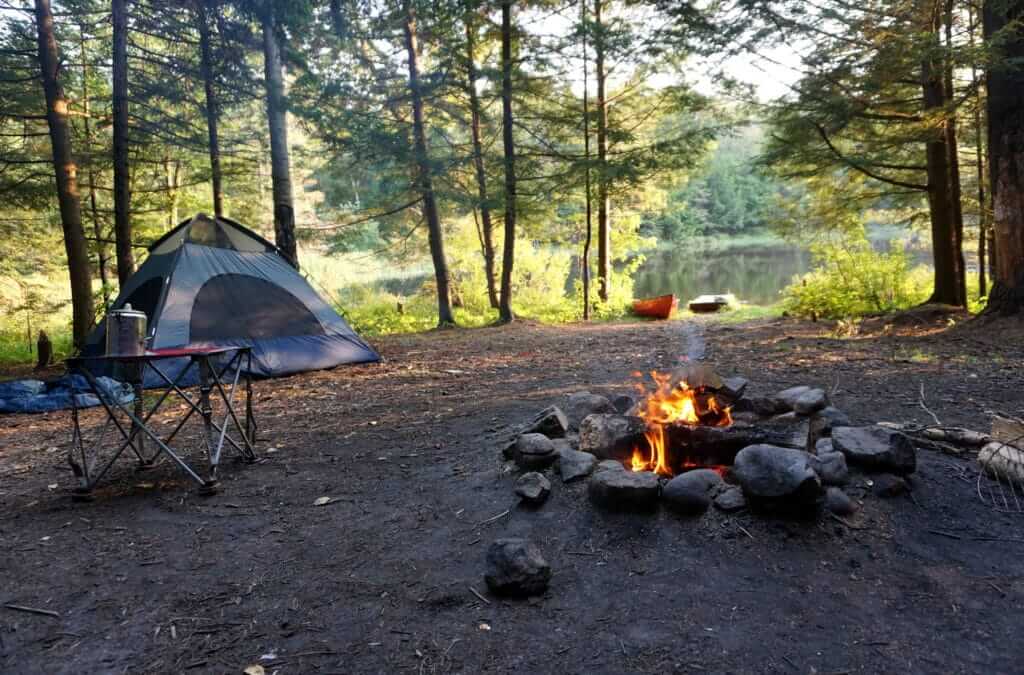
Pro Tip: Need to brush up on other terms for boondocking? Read the 5 Types of Boondocking Defined.
Pack It In, Pack It Out
Always practice the golden rule of outdoor ethics- Leave No Trace. Pack out all leftover food, trash, and litter.
Additionally, use your toilet facilities whenever possible, and always pack out your toilet paper. Pack it out means take it with you; a good steward would never burn their trash.
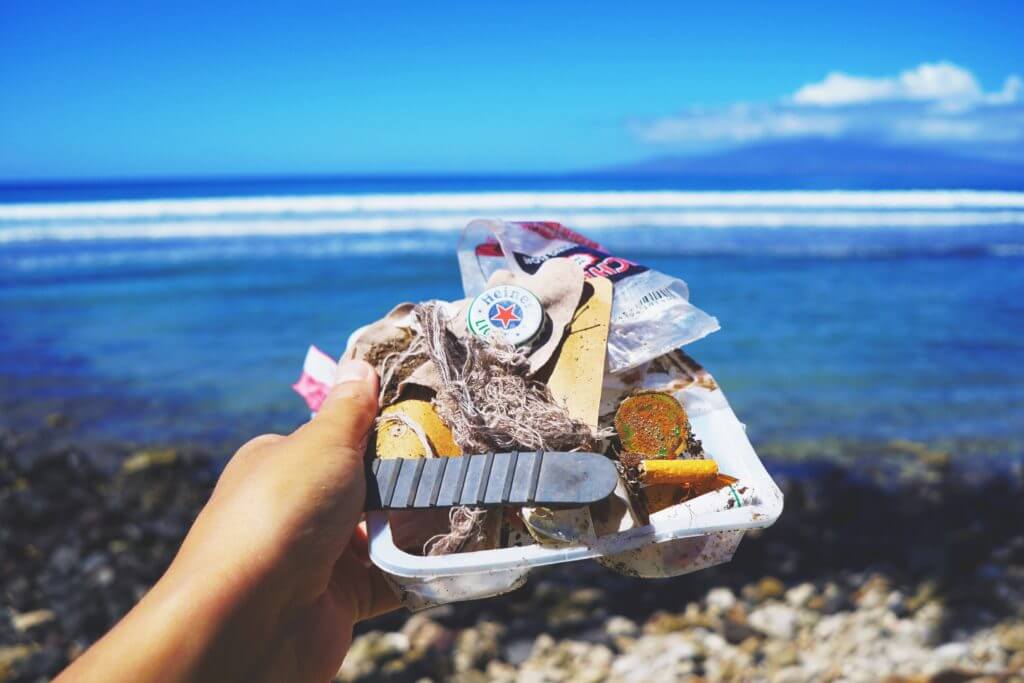
Respect the Wildlife
Observe wildlife from a distance, and never follow or approach them. Do not leave food scraps or directly feed the animals, as it disrupts the natural ecosystem. Store your food and trash securely.
Let’s all share these beautiful public lands and take care of them together. Don’t be those people out there ruining it for everyone else.
How Do You Find BLM Boondocking Campsites?
There are a few apps that are great tools to help you find BLM boondocking campsites.
First, Campendium is a great option because of the user reviews. This is critical when determining the road conditions, whether or not a high clearance vehicle is needed, the size of the campsites, the noise level, and the overall experience of other campers.
You can search for free public campsites to find dispersed camping locations near you and then read the reviews to determine if it’s a good place to take your rig.
Two other apps that are similar to Campendium are AllStays and RV Life Trip Wizard. With AllStays, you can select a state and then narrow your search by applying filters. I
n the Pro version of AllStays, you also have access to a map that displays road grades and clearances. This information is very important when taking an RV off the major highways to a dispersed camping location.
RV Life Trip Wizard is a more all-encompassing app that makes planning road trips simple and easy. You can use research campgrounds and overnight stops, track expenses, locate points of interest, find rest areas, and more with the trip planning tool.
The database includes BLM campgrounds, national forests, national parks, national recreation sites, and plenty of privately owned campgrounds as well.
Another community-driven tool to find BLM boondocking campsites is a website called FreeCampsites.net. It’s very easy to use. Simply enter a location in the search bar, and the map will display options nearby. Like Campendium, you can read user reviews and even submit new locations.
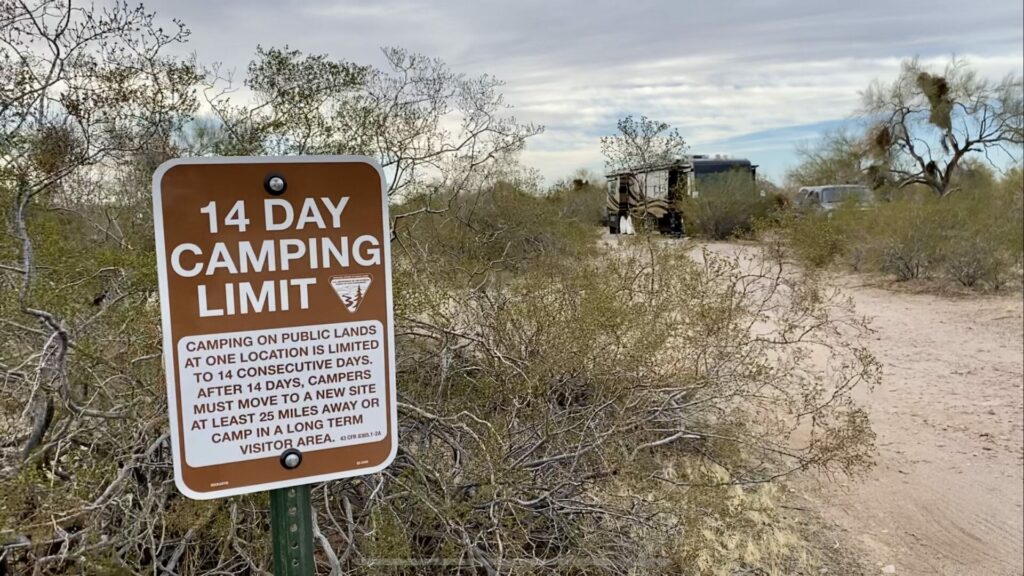
Enjoy BLM Boondocking While Protecting Our Public Lands
Our public lands are to be used for our enjoyment. But we must do so responsibly to ensure that future generations will also be able to enjoy these wild and scenic places.
There’s nothing better than waking up to a sunrise over the red canyons of the Southwest or drinking a glass of wine while watching bighorn sheep roam.
BLM boondocking is a great way to save money while camping, too. But we must do our part to protect these lands. Please follow these rules when you venture out to your next boondocking location!
Where will you camp next?




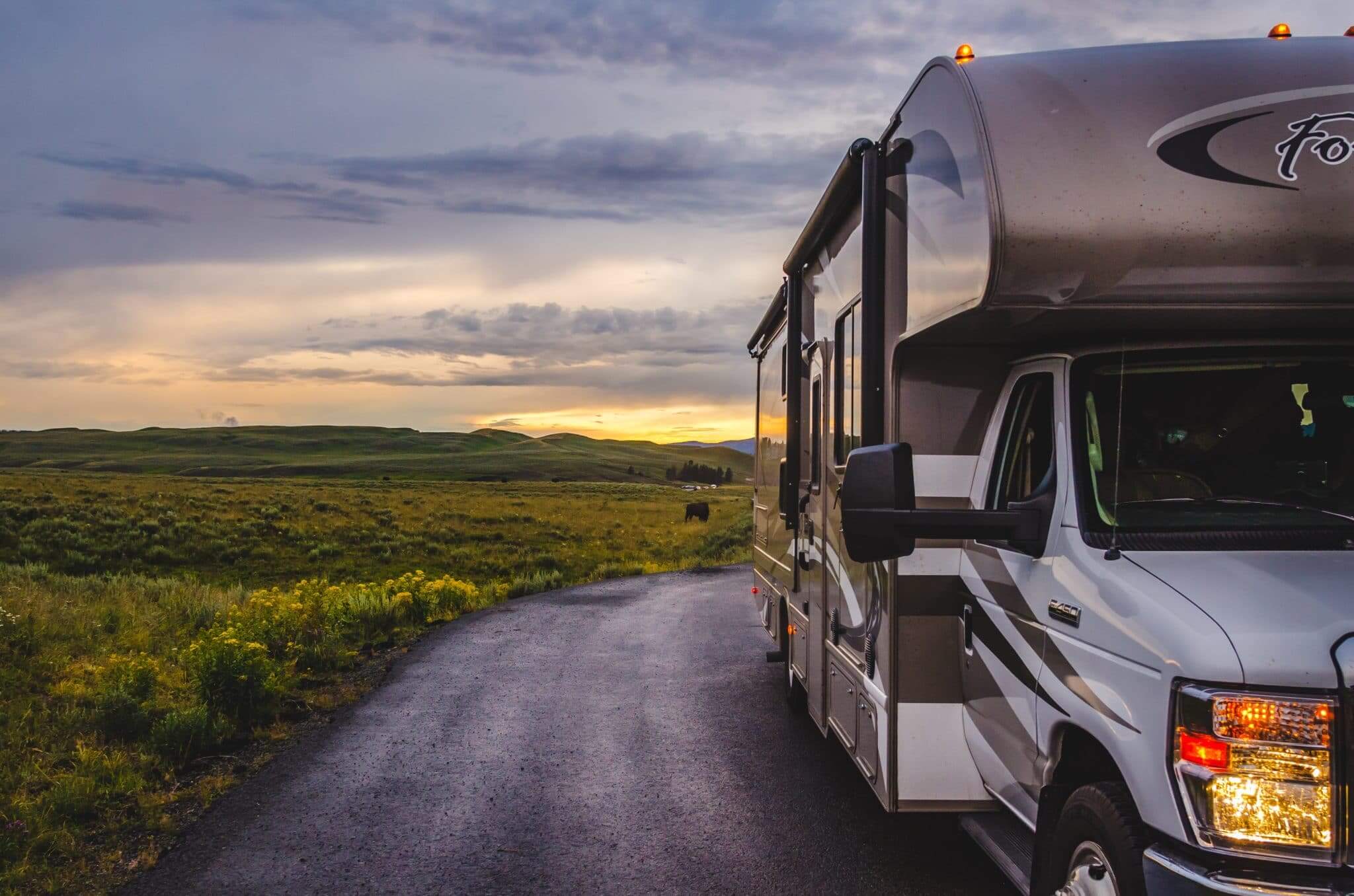
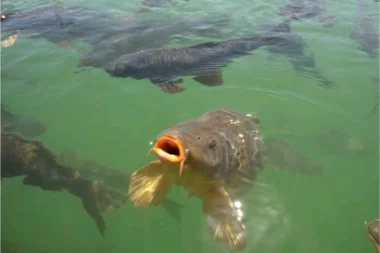

It really is crazy that adults require this type of reminder/directive. Who is training their kids? Thanks for all you guys do!!
Be well and stay safe!
Can nudist people go nude on BLM land?
Sure
I’ve done everything in camping from car to overnight backpacking and common sense and common courtesy are the Golden Rules. Behave as expected in a stranger’s home!! It’s so simple !!